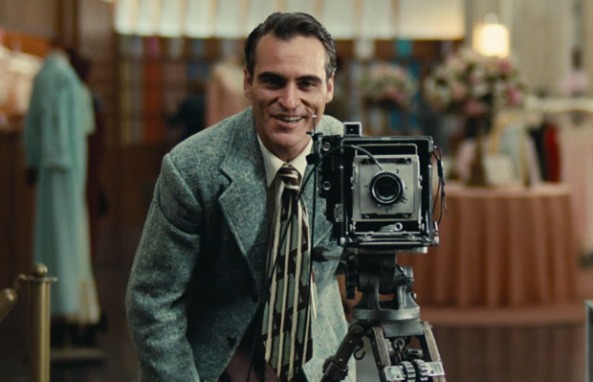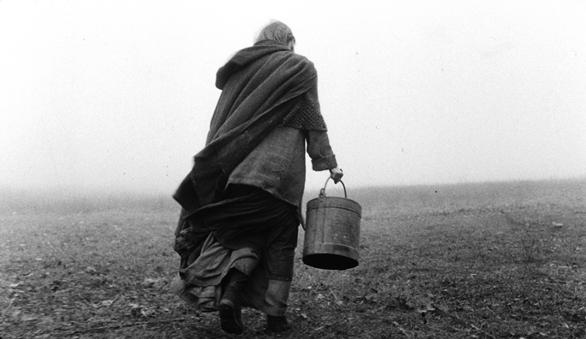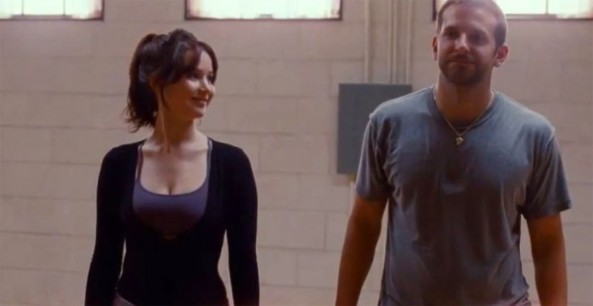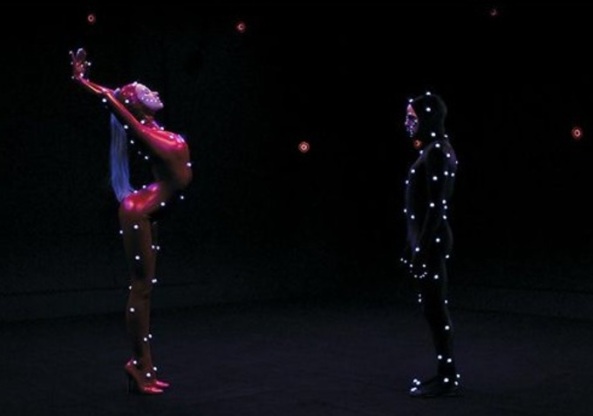Didn’t anyone get the memo that cinema is dead? 2012 came into greatness notoriously late in the year (if not trickling into next year), but the amount of quality that came out of big budget blockbusters, prestigious Oscar bait and critical darlings is too convincing to say that TV continued to dominate the cultural conversation this year. I can be cynical, but I’d rather just celebrate the movies with a generous round up of everything I hope you’re talking about and just waiting to discover.

1. The Master
Paul Thomas Anderson has me in his control. “The Master” is elegant, ambiguous, malleable and powerful. With Scientology as only the setting, it’s a difficult, dream-like film open to interpretation, but its strongest themes are the power and reach of the human mind and the capabilities of man. Joaquin Phoenix and Phillip Seymour Hoffman in the two best performances of the year are titans at war, one filled with unpredictable rage, repressed sexuality and energy, the other a deafening force of eloquence and conviction. Mihai Malaimare Jr.’s 70mm photography ripples with color and fantasy. Jonny Greenwood’s score pulses with animalistic alacrity. Watching “The Master” and assigning it meaning is a testament to the richness and complexity of mankind.
2. Life of Pi
If “Life of Pi” cannot make you believe in God, it at the very least can provide the faith that there is beauty and excitement in the world. Ang Lee’s innovative use of 3-D places us on an infinite plain of existence, one that has stunning natural beauty, visceral thrills, comedic charms, emotional poignancy and none of the Disney-fied cuteness. Pi’s sea voyage is pure visual poetry that resonates with you on a deeply spiritual level.
Perhaps no director today has a more distinct visual and tonal style than Wes Anderson, but “Moonrise Kingdom” is his most personal and close to the heart by far. Anderson funnels his love of classical music, the French New Wave and low rent spectacle into a magical film about kids living beyond their age. It finds the beauty of young love in a joyous, colorful and hilarious art house movie that anyone can relate to.
4. Beasts of the Southern Wild
“Benh Zeitlin’s “Beasts of the Southern Wild” is a wondrous, poetic, beautiful film about all the things humans can do when we stop acting like people afraid of nature and start living like brave beasts that become one with the world. It’s about color, light and discovery. It’s about being loved by the world, loving it back and understanding how to truly live. It’s about facing the other beasts of the world, and doing it head on.” (Excerpt from my review)
When a boy is abandoned by his father at an orphanage, he spends months blindly fighting to get back to him while rejecting the love and affection of others. The French film “The Kid With a Bike” is about the attachments we place on the things we love and the unexpected consequences that come of them. The Dardenne brothers’ simple and rugged film digs deep in its grainy and grizzled surface to find the sentimentality within.
6. Skyfall
At 50 years old, James Bond has never looked better. “Skyfall” marks the first time we’ve asked about Bond’s past and questioned his future, but we do so in by far the most exciting and stylish action movie of the year. Roger Deakins’s digital cinematography turns Bond’s fist fights into elegant shadow ballets, and Javier Bardem’s snake-like sexuality and compulsions make for some of the finest screen villainy this century.
Nearly 20 percent of all women who have served in the armed forces are sexually assaulted during their line of duty. That’s the horrifying truth at the heart of “The Invisible War,” a documentary that for that statistic alone is essential viewing for anyone in the military. But more so, Kirby Dick’s film is moving in its unification of women (and men!) who once all considered themselves an army of one. What sacrifices are we really asking our soldiers to make for our country?
8. Lincoln
Steven Spielberg’s “Lincoln” is the stirring American vision we deserve. A remarkably authentic account of the effort to abolish slavery, the story of “Lincoln” is a war of words, not worlds, yet remains as intense and rousing as any action movie this year. Daniel Day-Lewis melts into the visage of our 16th President while making the role all his own, and the monumental performances of Tommy Lee Jones and Sally Field anchor the best screen ensemble of the year.
9. Looper
Destined to be an action sci-fi classic, “Looper” accomplishes the impossible by being cool and accessible while staying dark and emotional. Director Rian Johnson makes the time travel conceit something other than an exercise in futility, devoting more attention to the film’s cocky, narcissistic heroes (Joseph Gordon-Levitt and Bruce Willis, his best dramatic work since “The Sixth Sense”), who are really both the same person. “Looper” is even a powerful forewarning of our civilization’s decline into more and more crime and violence, a nuance that along with its lens flares, canted angles and impressive visual effects, make it refreshingly modern.
10. Rust and Bone
“Rust and Bone” is a powerful and aggressively emotional film about people who are incomplete. A French romance of imperfect characters who are mending physically but damaged emotionally, Marion Cotillard and Matthias Schoenaerts give tough, often unsentimental performances that are not without humor and heart. Director Jacques Audiard (“A Prophet”) finds a mix between moments and visuals that feel stark and lonely, such as a lengthy wide shot of Cotillard lying in a hospital bed, and those between Cotillard and a whale, that are elegant statements of forming a bond.

Honorable Mention – The Turin Horse
Looking and feeling the way “The Turin Horse” does, one would believe it is a tortured, yet essential classic belonging to another time. But it came out in 2012 and may be the last film from the elderly Hungarian master Bela Tarr. It is bleak and draining beyond belief. In black and white and with only 30 shots, it is an excruciating sit. It is almost completely empty of activity, plot or dialogue. It will make you sick at the sight of baked potatoes. And by the end of it, you will feel as if the world is ending. Yet to call it anything other than spellbinding is a gross understatement.

11th Place Continue reading “The Best (And Worst) Movies of 2012”

